Eivør releases new single ‘UPP ÚR ØSKUNI / RISE FROM THE ASHES’
On her new album, Eivør leans heavier into electronic beats and cosmic orchestration. But ENN only deepens the connection to her Nordic roots. The title, which in English means “Still”, grounds her latest artistic leap in the comforts of home. With “UPP ÚR ØSKUNI / RISE FROM THE ASHES”, Eivør pays a loving tribute to all the strong women in her life while exploring the dark new depths of her music.
ENN comes out June 14 on Season of Mist.
Pre-order & Stream:
https://orcd.co/eivoruppuroskani
Merch:
https://eivor.travelling-merchant.com/merchandising
The four-on-the-floor thump of previous single “HUGSI BERT UM TEG / STILL JUST YOU” quietly declared that Eivør can shine as brightly as any pop star. But “UPP ÚR ØSKUNI / RISE FROM THE ASHES” is certainly her most metal moment. The song doesn’t begin with synthetic shimmers but a drum toll that echoes with the ominous force of an ancient spirit waking from deep inside cave. “Sing to the darkness”, she growls from the pit of her throat, conjuring a devilishly anthemic guitar riff that’s bound to enchant the hordes at this year’s Hellfest.
“When I was writing ‘UPP ÚR ØSKUNI / RISE FROM THE ASHES’, I imagined a coven of witches, past and present, chanting to each other across the chasms of time”,
Eivør says. That mental image will forever be seared into our cultural memory by the song’s positively bewitching video, which was created by a wickedly talented team of women.
“This video felt like a homecoming in many ways”, she continues. “I had a strong urge that to capture the spirit of ‘UPP ÚR ØSKUNI / RISE FROM THE ASHES’, we needed to film in the Faroe Islands. Katrin Joensen Næss was the perfect choice for director, as the two of us shared the same aesthetic vision. We were joined by an amazing team of Faroese female artists whom I also admire. Art Director Jenný Kragesteen, Costume Designer Maibritt Marjunardóttir and the rest of these wonderful women all delivered their special magic to this video. In the spirit of the song, we all felt that we rose from the ashes together creating this visual world. I couldn’t be more proud or more grateful for this collaboration”.
ENN is Eivør‘s first offering for the international metal label Season of Mist. But “UPP ÚR ØSKUNI / RISE FROM THE ASHES” was the last song that she wrote for the album. “I wanted to complement the earthy vibes of ENN with something raw, that was coursing with untamed feminine energy”, she says. Where lead single “JARÐARTRÁ/DUST TO DUST” beckoned us back into the blue embrace of Mother Earth, “UPP ÚR ØSKUNI / RISE FROM THE ASHES” cries out in celebration of all the mothers, sisters and other strong women in her life.
Eivør comes from one of the smallest places on the planet. She grew up in a village of 400 people, tucked away among the Faroe Islands. That she now performs on the world’s biggest stages – from the UEFA Champions League to The Game Awards and Red Rocks – is nothing short of extraordinary. But she hasn’t forgotten all of the women who have supported her along the way. With its heaving bass line, “UPP ÚR ØSKUNI / RISE FROM THE ASHES” certainly possesses dark undertones, but her falsetto soars above the song’s heavenly bridge. “We glide on powerful wings / Stride into our certainty“, she sings, followed by her own echo, as if the voices of women past and present are lifting her to even greater heights.
“I’ve never written a girl power song” Eivør says. “I guess it was about time”.
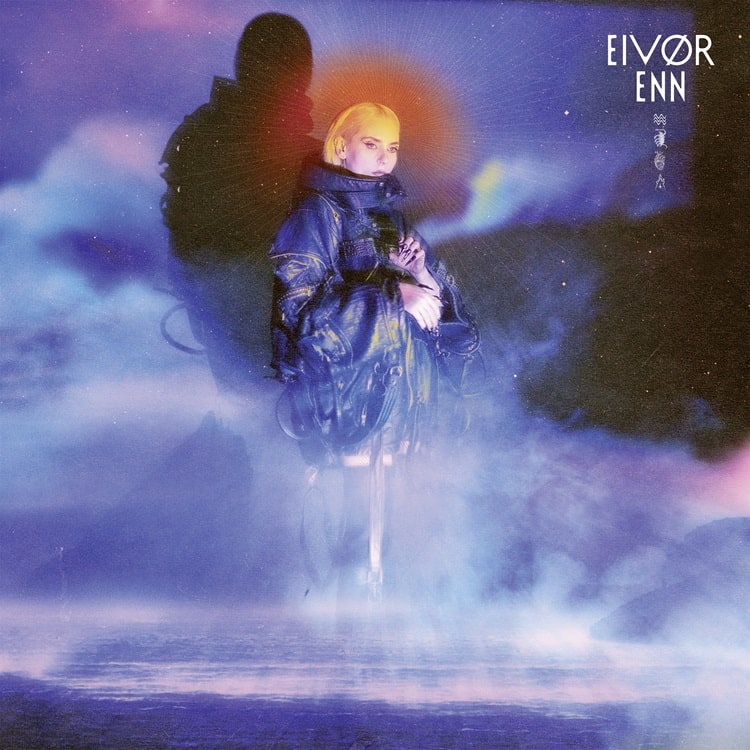
Tracklist
1. Ein Klóta (5:44)
2. Jarðartrá (4:47) [WATCH]
3. Hugsi Bert Um Teg (3:25) [WATCH]
4. Purpurhjarta (4:27)
5. ENN (7:11)
6. Lívsandin (4:35)
7. Upp Úr Øskuni (5:01) [WATCH]
8. Gaia (5:10)
Total runtime: 40:25
Recording line-up
- Eivør: Vocals, Guitars
- Mattias Kapnas: Piano, Rhodes and Synths
- Mikael Blak: Bass & Synths. Guitars on ‘Upp úr øskuni’
- Per I Højgaard Petersen: Drums & Soundscaping
- Strings performed by Lýra:
- 1st violin: Sigrún Harðardóttir
- 2nd violin: Sigrún Kristbjörg Jónsdóttir
- Viola: Karl James Pestka
- Cello: Unnur Jónsdóttir
- Choir on ‘Ein klóta’: Eivør, Tróndur, Hans Mols Mortensen, Greta Svabo Beck and Fred Ruddick
Eivør calls her Nordic home in the remote Faroe Islands a landscape of extremes. Sitting in the North Atlantic Ocean just above Scotland and southeast of Iceland, with a total population of about 50,000, the climate is “full of contrasts—very dark, heavy winters and bright summers.” Growing up in a small village there, of about 400 people, it’s those contrasts that have inspired Eivør‘s music throughout her career, as well as the Faroe Islands’ intense and still-vibrant connection to its own folk music traditions. “A very strong part of Faroese culture is singing together—anywhere people gather, there will be singing,” Eivør explains. “When you listen to old Faroese traditional music, it’s sung acapella and takes you back to its Renaissance roots. It’s pure, expressive, and untamed.”
Often considered to be one of the most prolific and unique Nordic artists of her generation, Eivør has released 11 studio albums to date, crossing musical genres and always pushing the bounds of the expected. Awarded with the Nordic Council Music Price in 2021, Eivør‘s musical journey continues to fascinate.
As a young teenager, Eivør was immersed in the tight-knit local music scene, playing with 20-something musicians in jazz bands as well as rock bands influenced by Portishead, Radiohead, Massive Attack, Sigur Rós and similar acts.
By 16, Eivør released her debut solo collection of Faroese-sung folk-pop. One year later, she left home to study classical singing in Reykjavík, Iceland—soon winning two Icelandic Music Awards for her sophomore album. She spent the ensuing years living in Copenhagen and building a career playing folk festivals, but by 2010, Eivør was ready for a change. Her daring Larva album eschewed the folksiness of her previous work for experimentation and electronics. “I needed to free myself from boxes,” she said. It was the beginning of a new chapter that continues with her richly atmospheric new album, ENN.
The process of ENN built on Eivør‘s recent immersion into production and beat-making, but began with a return to classical music. She and her partner, the classical composer Tróndur Bogason, had decamped to a tiny Faroe Islands mountain village of 50 people, called Tjørnuvík with no agenda but to “write freely” for a possible side project. “Slowly I realized: I shouldn’t think about this as a side project,” Eivør said. “This is where I am at right now creatively.” The first track they worked on there became ENN‘s melancholic closer, “Gaia,” which Eivør calls “a love hymn for the Earth” that reminded her of the Renaissance music she loved in her youth. On that trip, Eivør and Tróndur also wrote ENN‘s opener, “Ein Klóta,” a song about “watching your world from afar” as it changes. “I felt I was making a concept album, in a sense, about the Earth, about our home, our planet. Then it developed into both nature but also human nature—both the outer and the inner landscape, and the struggles of the heart, the struggles between the Earth and humans.”
In recent years, Eivør has composed extensively for film, television and video games (The Last Kingdom, God of War) and the cinematic structures of those scores found their way in alongside the music’s propulsive beats, omnipresent rooting in Faroese folk, and the classical flourishes of her opera training. Some of the songs feel like vistas or panoramas moving unexpectedly. “After writing the first two more spacious tracks, the idea started to grow in my head of almost a space opera,” Eivør said. “I was like, what if this journey starts out in space, and you watch the Earth? And you’re so far away from everything that you ever knew? Where am I going? What is this adventure?” The result was a synthesis of her career to date—her curiosity about beat making and noisy expressiveness, combined with the purity of classical music and cinematic atmospheres—and that sonic biography plays out beautifully on ENN‘s second track “Jardartra.” It begins with a lurching beat “almost like a heartbeat,” and Eivør wrote it from the Earth’s point of view, as if “Earth is calling on us in the midst of all our human greed and destruction and beckoning us to find our way back to her blue embrace.”
Most of the lyrics, sung entirely in Faroese, were penned in collaboration with the Faroese poet Marjun Syderbø Kjelnæs. Eivør calls the lyrics to the title track especially “hardcore.” The song is about war— “the wars that are going on in the world especially lately, but that have always been going on,” Eivør says, “and how to find a glimpse of light in this overwhelming darkness.” The guttural penultimate track, “Upp Úr Øskuni,” is a thrilling outlier mixing growling beatboxing with visceral throat singing (it’s certainly Eivør‘s most metal moment). She considers “Upp Úr Øskuni” a beacon of female empowerment and solidarity.
Eivør says. “I wanted it to be wild and untamed. It’s quite witchy. When I wrote the song, I imagined a coven of witches from the past and the present all supporting each other, chanting to each other across the chasm of time.”
After independently releasing her music for many years, ENN marks Eivør‘s debut for the metal label Season of Mist—and though her compositions sit outside of any one genre, she is happy to be embraced by the metal community. She identified a shared pagan sensibility in her television scores like The Last Kingdom. “I never felt I really fit into any box,” said Eivør. “I just have to do it my own way.” Recorded with her touring band in the Faroe Islands—where she now lives again, splitting time between her homeland and Denmark—Eivør called ENN “my most pleasurable and also most painful process. I felt that I was stepping into a place where I hadn’t been before, and that’s always scary because you don’t feel that you touch the ground. But it opens up your creativity and takes you to someplace new. It’s woven together all my experiences for the past 10 years, and it’s grounded me.”
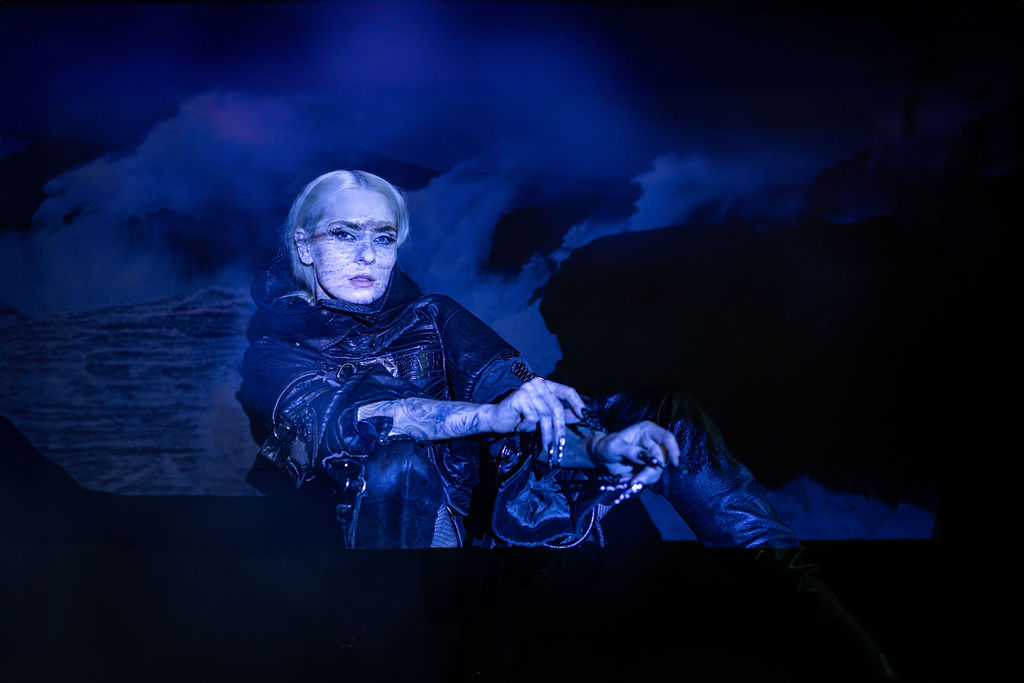
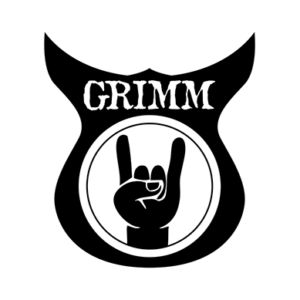

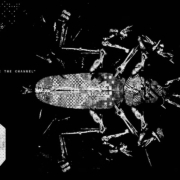
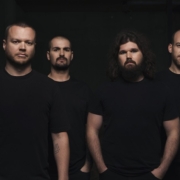
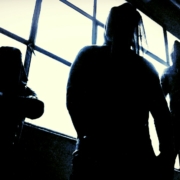
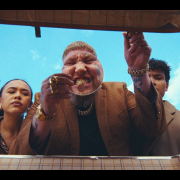
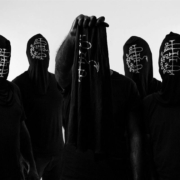
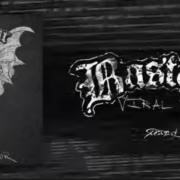




Leave a Reply
Want to join the discussion?Feel free to contribute!